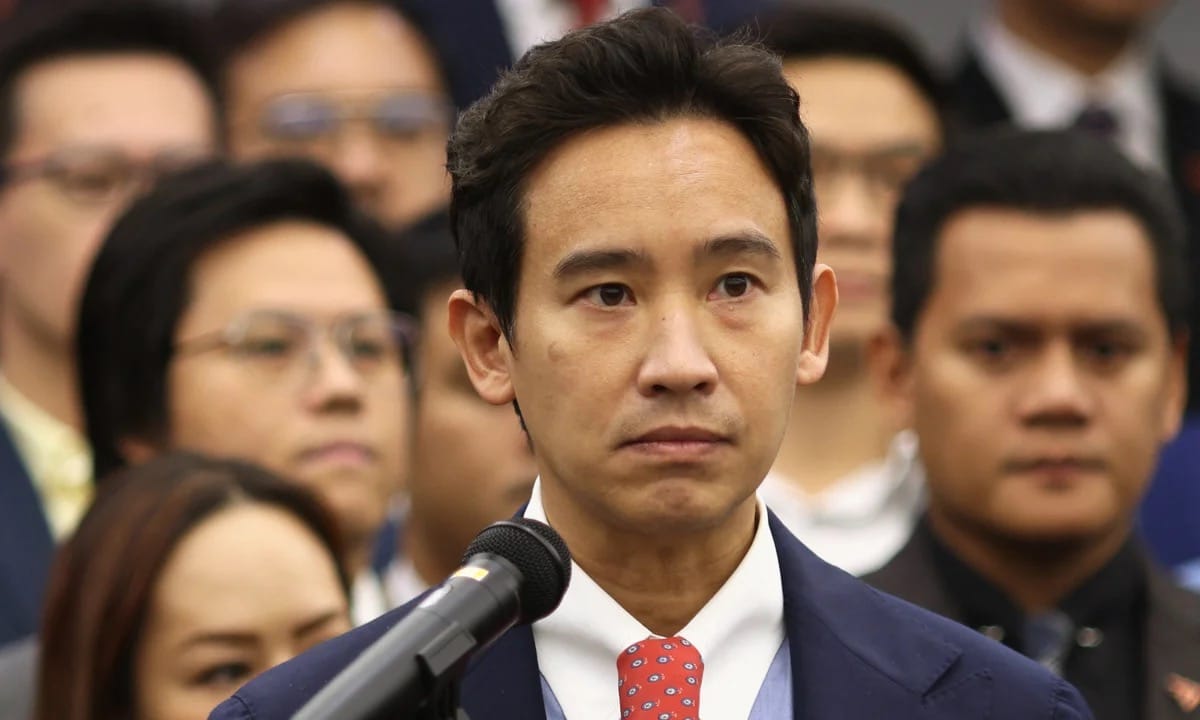Thai Constitutional Court Dissolves Reformist Party, Bars Key Figures from Politics
Thailand's Constitutional Court dissolves the Move Forward Party, banning ex-leader Pita and 10 others for 10 years. Remaining MPs plan to continue in opposition under a new party.
Thailand’s Constitutional Court has ordered the dissolution of the reformist Move Forward Party, which won the most seats and votes in last year’s general election but was subsequently blocked from forming a government. This verdict, expected due to previous court rulings, also bans the party's former leader Pita Limjaroenrat and 10 other senior figures from participating in politics for a decade.
The decision follows the court’s January ruling that Move Forward’s campaign promise to reform the country’s stringent lese majeste laws was unconstitutional. The court equated changes to these laws, which prohibit defamation of the monarchy, with a threat to the constitutional monarchy itself.
This ruling underscores the lengths to which unelected institutions in Thailand are willing to go to maintain the monarchy’s status and power. However, the dissolution of Move Forward does not signal the end of the reformist movement within Thai politics. The remaining 142 Move Forward MPs are expected to join another registered party and continue as the main opposition in parliament.
“A new journey has begun. Let’s keep walking together, people,” the party announced via a message and video on social media platforms. Chaithawat Tulathon, the leader of the opposition and one of the barred MPs, expressed his gratitude and honor in working with his colleagues in a farewell speech at the parliamentary chamber.
The ruling is likely to provoke anger among millions of young and urban voters who supported Move Forward’s progressive agenda. Nevertheless, the impact of the court's decision is expected to be limited. The party’s surviving lawmakers will retain their parliamentary seats and are expected to regroup under a new banner, similar to the reorganization that followed the dissolution of Future Forward in 2020.
Move Forward's influential rivals had previously blocked the party from forming a government, but the progressive movement remains a significant political force. The movement continues to challenge the status quo with its platform, which includes military reform and dismantling big business monopolies.
Despite the setback, Move Forward’s journey is far from over. However, 44 of its current and former politicians, including 26 legislators, face complaints to an anti-graft body by conservative activists. These complaints seek lifetime political bans over the party’s campaign to change the royal defamation law.
Supporters of Move Forward have expressed deep disappointment and disbelief at the ruling. At the party's headquarters, loyalists voiced their dismay. "It feels like we have hit rock bottom, truly hit rock bottom," said Sirinapa Veillet, 58. "It feels like we have no support left, none at all," she lamented about Thailand's democratic institutions.
Amnesty International condemned the ruling as an “untenable decision,” accusing Thai authorities of relentlessly harassing political opposition.
The timing of Move Forward's dissolution is critical for Thai politics, highlighting emerging cracks in the uneasy truce between the military-backed establishment and the populist ruling Pheu Thai Party. Move Forward had been denied power when the Senate, endowed with veto power over prime ministerial candidates by a 2017 military-backed constitution, refused to accept Pita’s nomination due to his stance on lese majeste law reform. Subsequently, Move Forward was ousted from a coalition with Pheu Thai and became the head of the opposition.
In court, Move Forward argued that the Constitutional Court lacked jurisdiction and that the Election Commission’s petition did not follow due process. The party claimed it was not given an opportunity to defend itself before the case was submitted. However, the court asserted its authority to decide the case, deeming its previous ruling in January sufficient evidence for the Election Commission to proceed without further hearings.
Despite this ruling, the reformist movement is expected to persist, continuing its quest for significant political and social reforms in Thailand.






